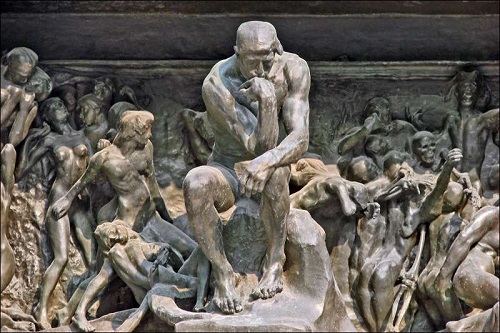FWP:
S. R. Faruqi's choices. For more on Ghalib's unpublished verses, see the discussion in {4,8x}.
On rozgār , see {20,7}.
The speaker has been disqualified for ordinary worldly life by the 'practice, usage' [mashq] of two mental activities: 'thought/anxiety about union' and 'grief about separation'. (Grammatically it would be possible for the mashq to apply only to the former, but the general thrust of the verse strongly suggests that the two activities are parallel.) The primary meaning of mashq is definitely 'practice, usage'; it's the word most commonly used to describe the continuing skilful activity that makes an Ustad the master that he is. But still-- take a look at the definition above, and notice the extraordinary and altogether piquant range of other meanings that the word drags in its train. These include 'piercing, striking, beating, lashing, tearing, combing, chafing, galling, stretching', and 'writing'-- and how well they evoke, or even partly constitute, the history of the lover's life!
This multivalent 'practice, usage' applies to the paired opposites of 'union' and 'separation'. But though the 'grief of separation' is straightforward enough, nothing so simple as 'joy in union' can be envisioned. Rather, 'union' is something experienced through fikr (see the definition above)-- a word with meanings that start out neutral ('thought, idea') and then progress through the ominous ('solicitude, anxiety') to the dire ('grief, sorrow'). This range of meanings makes any vision of 'union' itself seem a source of pain rather than delight (because it's unavailable? because it's ruined by anxieties? for some other reason?).
And of course it's left up to us to decide just what kind of a self-definition this is. Is the speaker so ground down by inner suffering that he's apologizing for his inability to cope with the outer world? Is he so loftily remote in his mystical self-absorption that he doesn't deign to waste his energies on anything as trivial as worldly concerns? Is he just making a neutral, clinical observation? Or is he realizing that his unfitness for this-worldly life now signals his imminent death?

Asi:
The grief of separation and the thought/anxiety of union-- only these two activities have become specialties of ours; we absolutely cannot do any other task. For enduring the other griefs of the age/world, we have no leisure or necessity. Nor do we have the strength.
== Asi, p. 231